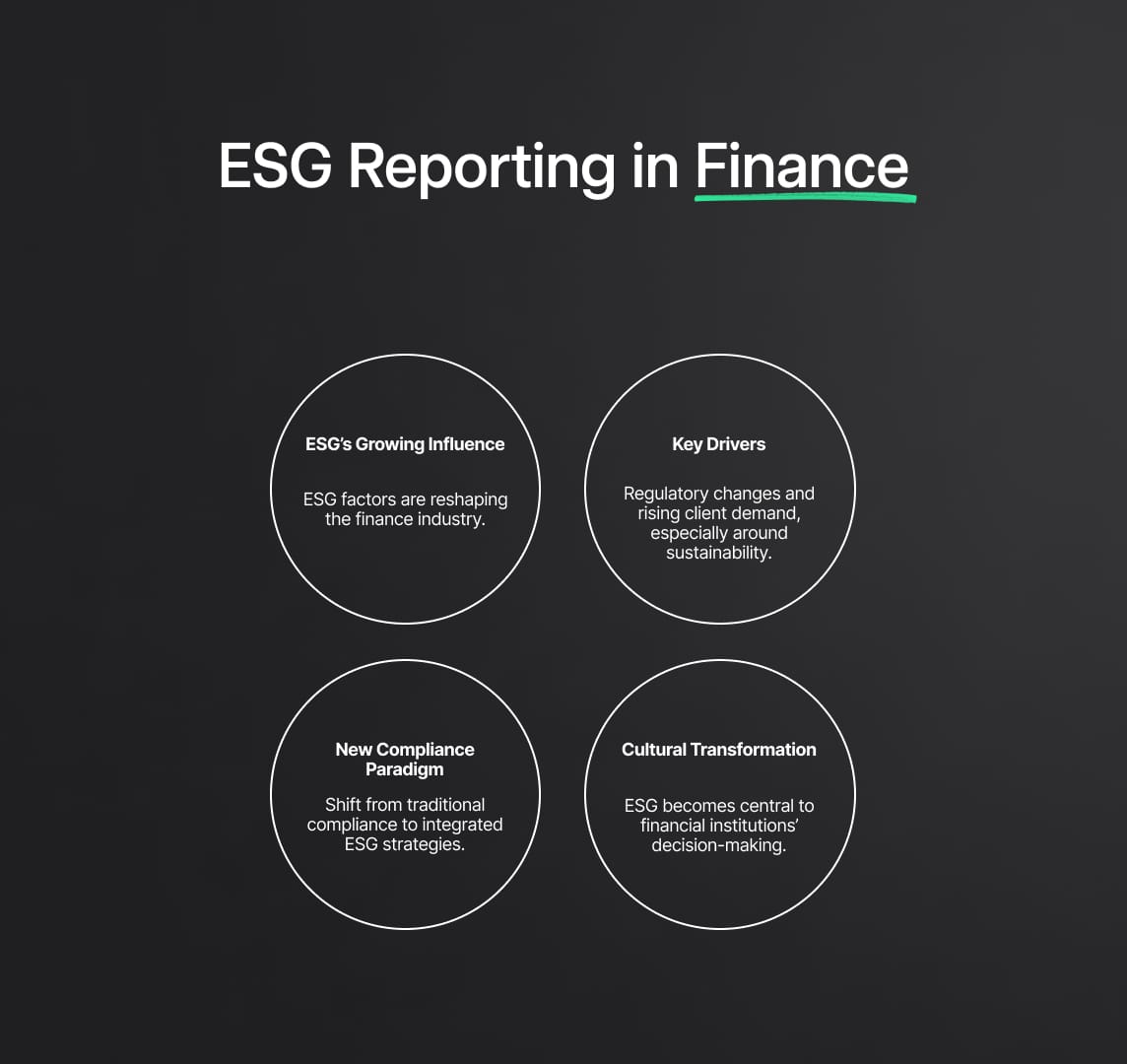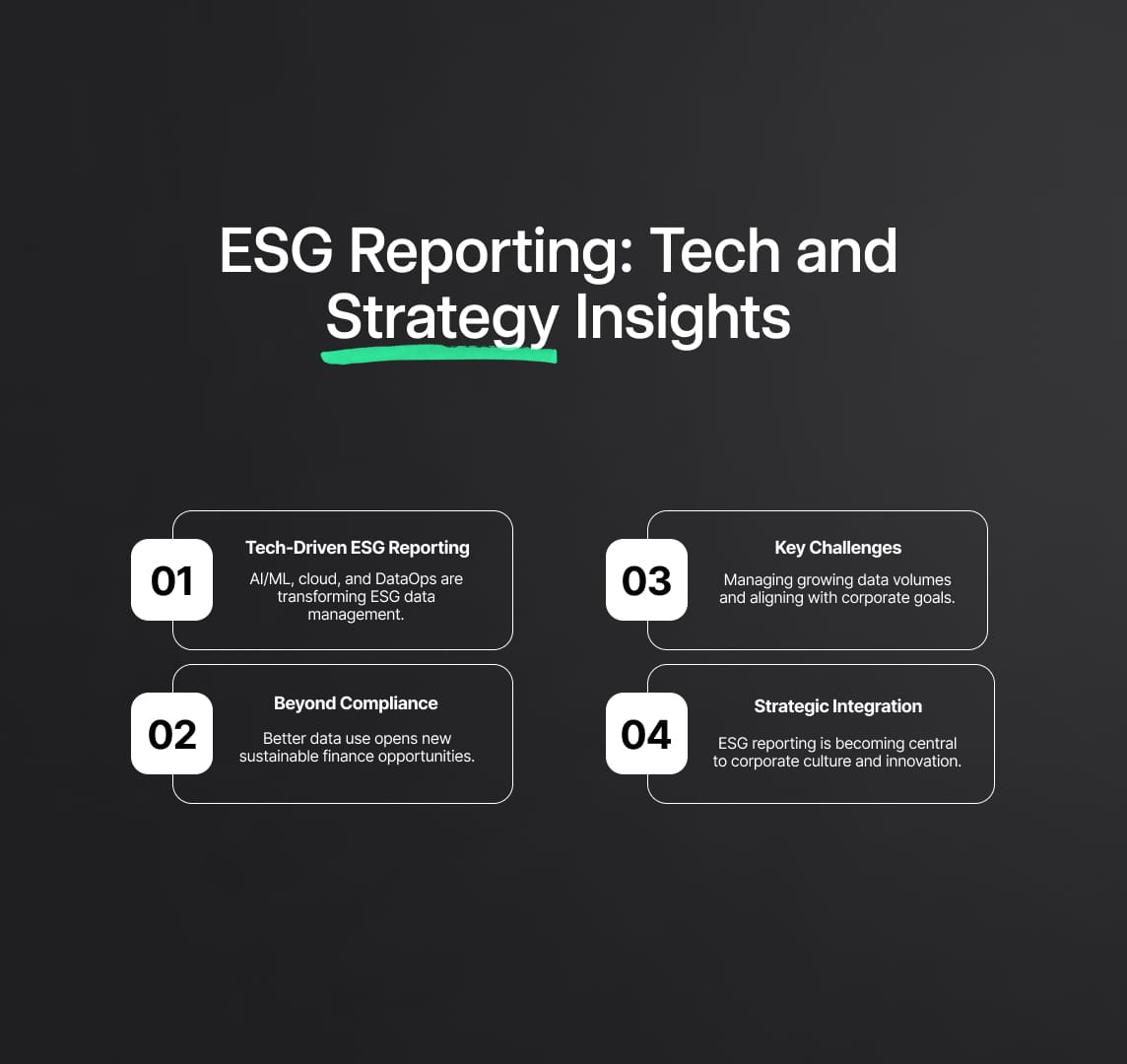ESG Compliance Reporting for Financial Institutions
Transformation in the financial sector is evident with the increasing emphasis on ESG Compliance Reporting. The shift towards integrating Environmental, Social, and Governance factors, supported by DataOps and AI, marks a new era in sustainable industry practices

ESG Data in Financial Compliance reporting
Environmental, social, and governance (ESG) data has become increasingly important in the financial industry in recent years, especially when it comes to environmental factors. This increase is mostly the result of client and regulatory goals on environmental matters aligning.
ESG data has a lot of potential, but it also has drawbacks, particularly in light of the growing legal requirements placed on international financial institutions. The need for a change in ESG Compliance Reporting was emphasized in a recent paper released at the Operations, PostTrade, Technology and Innovation Conference (OPTIC) by the Association for Financial Markets in Europe (AFME) and Protiviti.
The paper promotes a shift in perspective from one that is compliance-focused to one that is more broadly integrated, incorporating ESG data into a variety of goods and services. Numerous governmental actions are driving this change and generating large databases of ESG information. In this particular context, data operations, or DataOps, are critical because they manage the data's lifespan and ensure compliance with legal requirements.
For financial organizations, implementing cutting-edge technology like cloud computing and AI/ML is essential. With the help of these tools, they can make efficient use of ESG data and gain a competitive advantage in the quickly growing market for sustainable financing products and investments.

ESG Compliance Reporting in the Financial Sector
Evolution of ESG Compliance Reporting: A New Era in Finance
The financial world is adapting to a significant shift, driven by the emerging importance of ESG:
- Rising Prominence of ESG: The increasing focus on Environmental, Social, and Governance (ESG) factors is fundamentally altering the finance industry.
- Drivers of the ESG Movement: This shift responds to dynamic regulatory landscapes and growing client expectations, especially in the realm of environmental sustainability.
- A Revolution in Compliance: As the AFME and Protiviti study at the OPTIC conference pointed out, the sector is transitioning from more traditional compliance techniques to a more integrated strategy that incorporates ESG into all aspects of financial operations.
- Cultural Shift in Financial Institutions: This move calls for a profound cultural shift in which ESG principles are integrated into corporate operations and decision-making procedures rather than being an add-on.

Navigating New Frontiers: Technology and Strategy in ESG Compliance Reporting
The journey towards effective ESG Compliance Reporting is marked by technological innovation and strategic planning:
- Innovations in Technology Shaping the Future: The use of AI/ML, cloud computing, and sophisticated data operations (DataOps) is changing the management and use of ESG data.
- Going Beyond Regulatory Compliance: By efficiently processing and utilizing ESG data, these technologies let institutions move beyond regulatory compliance and seize new opportunities in sustainable finance.
- Overcoming Challenges with Strategic Approaches:
- Mastering the Data Deluge: With the increase in ESG data comes the challenge of managing it without getting overwhelmed. Institutions need robust data management and analysis systems.
- Strategic Integration and Balanced strategy: Integrating ESG data requires a strategically balanced strategy. It entails keeping an eye on sustainability, guaranteeing operational effectiveness, and coordinating ESG measures with corporate goals.
- Integrating ESG into the Corporate Ethos: ESG compliance reporting ought to be seen as a fundamental part of corporate strategy as well as a legal requirement. In a financial environment that is evolving quickly, this integration is essential for promoting innovation, improving risk management, and ensuring long-term profitability.
Reduce your
compliance risks

